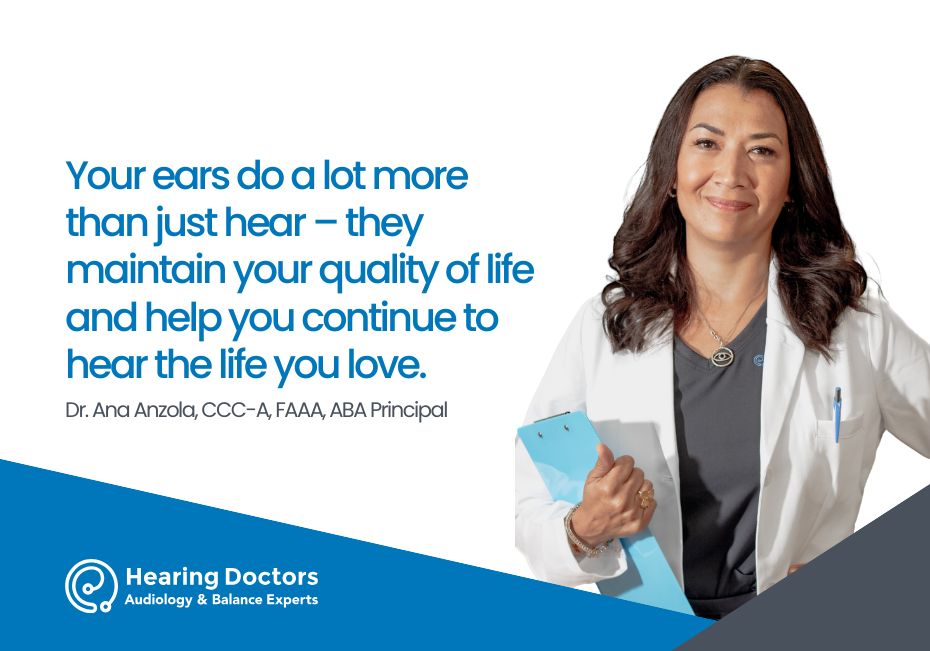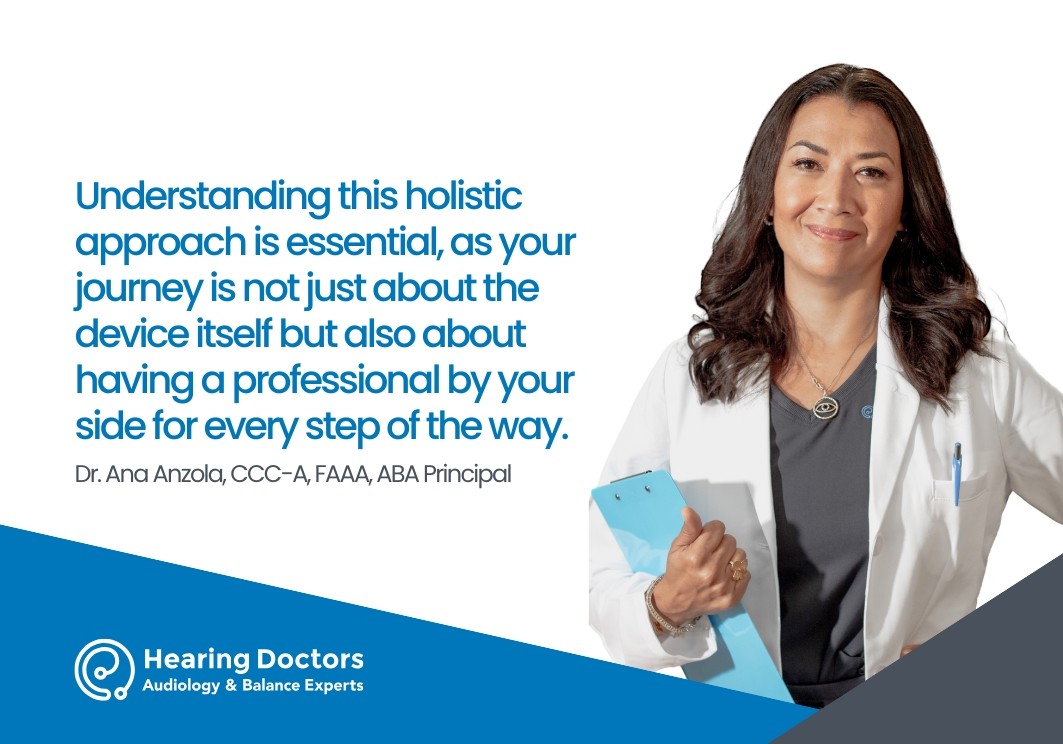Dr. Ana
Anzola, CCC-A, FAAA, ABA Principal
Your hearing aids require some care, maintenance and a working battery in order to deliver the best sound quality. Here are some things you can do to keep your hearing aids performing their best.
Check The Listening
Use a listening tube to check the listening of your hearing aids every day. You want to make sure that the listening of your hearing aids is clear, not scratchy or weak. Check to make sure that the sound is consistent, and there isn't any feedback coming through your devices.
Power Up
A battery tester will help you to know if the batteries on your hearing aids are fully charged. Make sure you keep spare batteries on hand in case there is a problem with the ones you're currently using. Clean the battery contacts with a cotton swab at least once a week.
Power Down
Make sure you turn your hearing aids off when you remove them to save the battery. If you are taking them out for a long time, or at the end of the day, remove the battery to keep it fresh.
Keep Your Hearing Aids Clean
Use a soft, dry cloth to clean your hearing aids on a regular basis. If you have earmolds, they can be removed from the hearing aid and cleaned with a mild soap solution. Earmolds should be dried using a forced air blower – not a hair dryer! And make sure they are completely dry before reattaching them to your hearing aids. Watch video: How to Clean Your Hearing Aids >>
Keep Your Hearing Aids Dry
Keeping your hearing aids dry is an important step to keep them working properly. Use a hearing aid drying container (such as the Dry & Store) to keep moisture from building up inside your hearing aids, and make sure you remove the batteries before storing them so moisture doesn't build up around the batteries. Watch video: How to Use the Dry & Store >>
Keep Your Hearing Aids Cool
Keep your hearing aids away from heaters and other heat sources. Don't leave them in the car, and don't put them in the microwave or the oven to dry them out. Those kinds of direct heat can damage your devices. Either let them air dry, use forced air, or a drying container.
Visit Your Audiologist
The most important thing to do is to schedule regular visits with your audiologist. A professional will be able to tell if your hearing aids are in perfect working condition, if they need any special cleaning or attention, and most of all, they will make sure your hearing aids are working optimally for you.
Popular Blogs

Jun 3, 2025
Dr. Ana
Anzola, CCC-A, FAAA, ABA Principal
Understanding Types of Hearing Loss: Sensorineural, Conductive, and Mixed

May 21, 2025
Dr. Ana
Anzola, CCC-A, FAAA, ABA Principal
What Impact Is Artificial Intelligence Having on Hearing Aid Technology?

Apr 28, 2025
Dr. Ana
Anzola, CCC-A, FAAA, ABA Principal
Do You Think You’re Too Young for Hearing Loss?

Apr 15, 2025
Dr. Ana
Anzola, CCC-A, FAAA, ABA Principal
The Best Hearing Aids in 2025: Insights From a Doctor of Audiology


